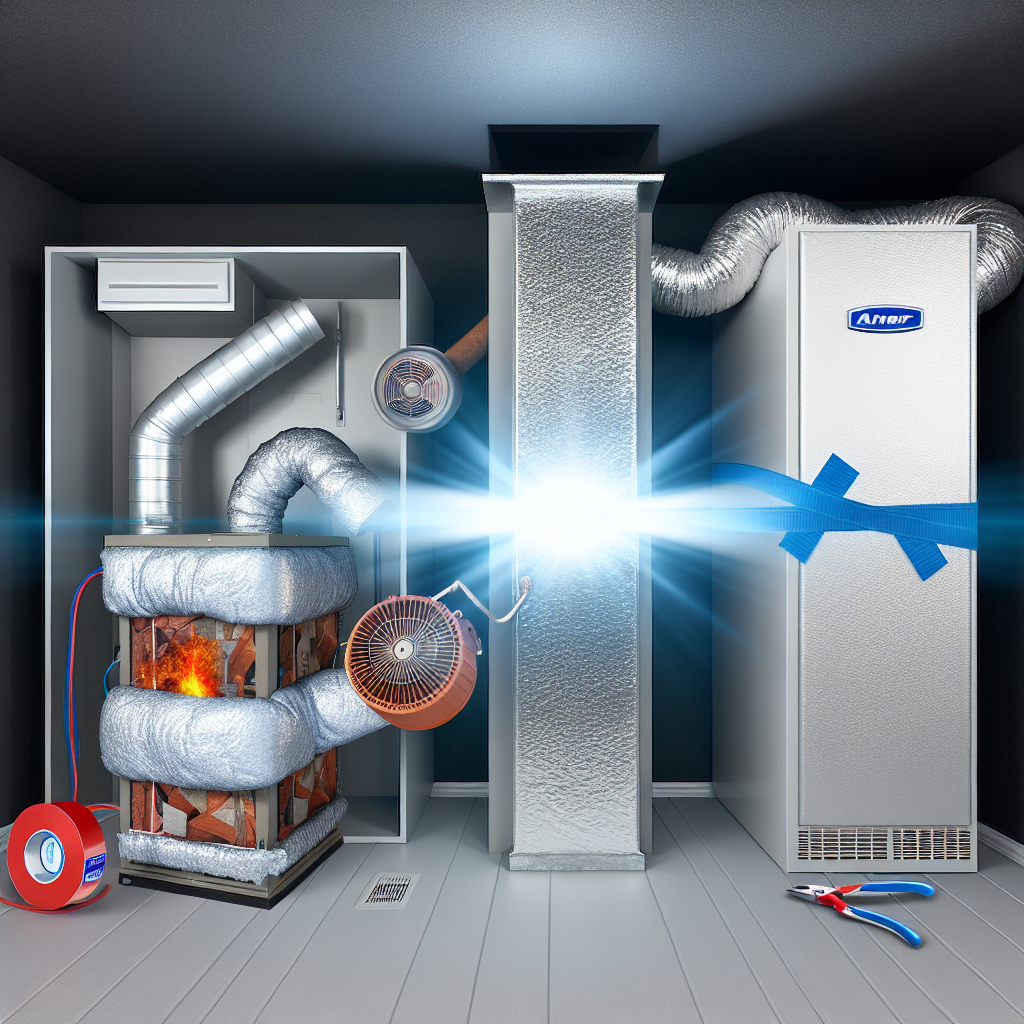Published: Mar 02, 2025

Heating, ventilation, and air conditioning (HVAC) systems play a crucial role in maintaining comfort levels in our homes. However, there are several myths and misconceptions surrounding HVAC systems that can lead to inefficiencies, unnecessary expenses, and even potential damage. In this blog post, we will debunk some of the most common HVAC myths to help you make informed decisions about your system.
One of the prevailing myths about HVAC systems is that closing the vents in unused rooms can help save energy. Contrary to popular belief, closing vents can actually disrupt the airflow balance in your system, leading to increased pressure and potential leaks in the ductwork. This can result in reduced efficiency and increased energy consumption, as your HVAC system has to work harder to maintain the desired temperature.
Another common misconception is that a larger HVAC system will provide better cooling or heating performance. In reality, an oversized system can lead to short cycling, where the system turns on and off frequently, causing uneven temperatures and excess wear and tear on the components. It's essential to have a properly sized HVAC system that is matched to the specific requirements of your home to ensure optimal performance and energy efficiency.
Some homeowners believe that regular maintenance for their HVAC system is unnecessary and a waste of money. However, routine maintenance is crucial for keeping your system running smoothly and efficiently. Regular tune-ups can help prevent breakdowns, extend the lifespan of your equipment, improve indoor air quality, and lower energy bills in the long run. Neglecting maintenance can result in costly repairs and premature system failure.
Many people think that setting the thermostat to extreme temperatures will cool or heat their home faster. In reality, your HVAC system will operate at the same speed, regardless of the temperature setting. Setting the thermostat to extreme temperatures can lead to discomfort, increased energy consumption, and unnecessary strain on the system. It's best to set your thermostat to a moderate and comfortable temperature to maintain consistent comfort levels efficiently.
A common myth is that you only need to change your HVAC air filter once a year. In reality, air filters should be checked and replaced regularly to ensure proper airflow and indoor air quality. Clogged or dirty filters can restrict airflow, causing the system to work harder and leading to reduced efficiency and potential damage. It's recommended to inspect your air filter every 1-3 months and replace it as needed to maintain peak performance.
Not all HVAC technicians have the same level of expertise, training, and certifications. It's essential to hire a professional HVAC technician who is licensed, insured, and experienced to perform installations, repairs, and maintenance on your system. Working with a reputable technician ensures that the job is done correctly, safely, and up to industry standards, giving you peace of mind and confidence in your HVAC system's performance.
Many people believe that duct tape is a quick and effective fix for sealing ductwork leaks. However, duct tape is not suitable for long-term duct sealing, as it can deteriorate over time and fail to provide a lasting seal. Properly sealing ductwork requires the use of mastic sealant or metal tape specifically designed for HVAC applications. Addressing ductwork leaks promptly can improve airflow, indoor air quality, and energy efficiency in your home.
While some homeowners believe that turning off the HVAC system when leaving the house can save energy, it can actually result in increased energy consumption and discomfort. When the system is turned off completely, it has to work harder to cool or heat your home back to the desired temperature when you return. It's more energy-efficient to set the thermostat to a higher temperature in the summer or a lower temperature in the winter when you're away for an extended period.
Ceiling fans are often misunderstood as devices that cool or heat a room. In reality, ceiling fans do not change the temperature of a room but create a wind-chill effect that makes occupants feel cooler by circulating air. In the winter, ceiling fans can be reversed to push warm air down from the ceiling, improving heating efficiency. It's important to use ceiling fans in conjunction with your HVAC system to enhance comfort and energy savings.
While HVAC systems play a role in improving indoor air quality, they cannot eliminate allergies entirely. Air filters can capture dust, pollen, and other particles, but allergens can still circulate in your home if not properly managed. To reduce allergens, consider using high-efficiency air filters, maintaining a clean home, and scheduling regular HVAC maintenance to keep your system operating efficiently. Additionally, consider adding air purifiers or humidifiers to your HVAC system for enhanced indoor air quality.
In conclusion, debunking these common HVAC myths can help you make informed decisions about your system, maximize energy efficiency, and ensure optimal comfort in your home. By separating fact from fiction and following best practices for HVAC maintenance and operation, you can improve the performance and longevity of your system while minimizing energy costs and potential repairs.
Remember, maintaining your HVAC system through regular inspections, tune-ups, and professional services is key to its overall performance and efficiency. Don't fall for these commonly held myths that can lead to misconceptions and unnecessary expenses in the long run. Stay informed, stay efficient, and enjoy a comfortable and healthy indoor environment.
**

Our expert technicians are ready to assist you 24/7!
Contact Us Today!Read our latest articles for helpful information about heating, cooling, and air quality.
Regular air duct cleaning offers a multitude of benefits, including improved air quality, enhanced energy efficiency, p...
Read MoreRecognizing signs such as age, rising energy bills, frequent repairs, uneven heating/cooling, and strange noises/odors...
Read MoreRegular HVAC maintenance is crucial for keeping your system running smoothly, avoiding costly repairs, and improving ene...
Read MoreUpgrading to energy-efficient HVAC systems through measures like programmable thermostats, duct sealing, high-efficienc...
Read More